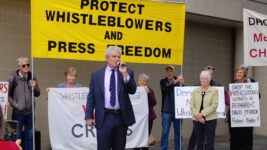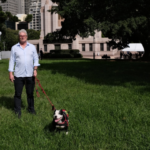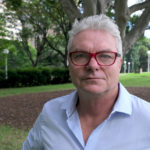The McBride Public Interest Defence Fiasco Shows Labor Is Also Out to Get the Whistleblower

Former ADF lawyer David McBride is facing charges that could see him spend the rest of his life in prison. And following last week’s court debacle, which saw his legal team told that any evidence it produced could be withheld, it’s now clear that the persecution of McBride is a bipartisan affair.
After two tours in Afghanistan as a legal officer, the lawyer blew the whistle on the travesties he saw at all levels of Australian operations. And he initially took his complaint to the key authority – the Inspector General of the Australian Defence Forces – but, on proving fruitless, he went to the media.
Attorney general Mark Dreyfus inherited three whistleblower prosecutions, which were political in nature, and had been launched years after the fact, by ex-Liberal AG Christian Porter.
And in using a power afforded to the attorney general, contained in section 71 of the Judiciary Act 1903 (Cth), the new chief lawmaker dropped the political prosecution of ACT barrister Bernard Collaery, but failed to do so in McBride’s case.
The 27 October hearing concerned McBride’s pre-trial public interest defence (PID), but his legal team pulled out last minute, as not only was the prosecution to challenge its only two witnesses, but an order had been placed on proceedings so any defence evidence could be removed.
McBride’s lawyer, Mark Davis, further points out that as the case is subject to national security orders, Dreyfus is ultimately in charge of who gets to see the evidence, yet he also claims it would be inappropriate for him to intervene and stop the case.
Defence owing denied
“We’d been in this PID, under the national security information orders, for 18 months: that is how long it took us to get to that court room,” Davis told Sydney Criminal Lawyers. “Eighteen months of intense security demands, provisions, provisos, conditions, clearances and restrictions.
“We had two witnesses only. They opposed them both. They gave us notice on one of them months before, but the second one, they challenged merely days out,” he continued. “They had twenty witnesses. We did not challenge one.”
Recognised as the expert on the Public Interest Defence Act 2013 (Cth), under which McBride’s PID would be argued, Professor AJ Brown was initially challenged as a witness. Then, last week, the Crown gave notice that it opposed Professor Clinton Fernandes: “Australia’s foremost expert on intelligence”.
On top of this, 80 percent of the PID hearing was to be closed to the public due to a national security order placed on McBride’s proceedings.
But the clincher was a last-minute public interest immunity (PII) claim the government made to remove certain evidence from the court that McBride’s lawyers might produce and put to a witness.
“They then imposed this PII, which means they can remove evidence, so the evidence becomes unavailable to you,” the lawyer explained. “It is also unavailable to the judge. It’s unavailable to anyone, but most significantly, it is unavailable to the defence.”
“Untenable” defence proceedings
McBride was set to argue the defence provided to public sector whistleblowers in the PID Act, which Dreyfus drafted and oversaw the passing of in 2013, during a previous stint in the role of the nation’s chief lawmaker during the Rudd government.
The 2016 Moss report into the PID Act found it to be flawed. In opposition, Dreyfus admitted the laws are lacking when it comes to protecting whistleblowers and has pledged to overhaul the legislation. He continues to maintain he will do this, but obviously not in time for McBride.
Former AG Michaelia Cash issued a non-disclosure certificate to cover McBride’s PID hearing, under section 38F of the National Security Information (Criminal and Civil Proceedings) Act 2004, which means that documented evidence can be redacted or the court be closed for certain testimony.
So, it was under these extreme secrecy measures that the prosecution, ultimately overseen by the AG, expressed opposition to the witnesses. And the court would have determined if the two experts could testify last Thursday, however then the PII was issued, and the case was withdrawn.
The doctrine of public interest immunity permits the executive to seek to prevent certain evidentiary documents being produced in court on the basis that the disclosure of them could prejudice the public interest.
“The PII literally rips the evidence out of the folder, that piece is no longer available to refer to. It is gone,” Davis made clear. “Now that’s an incredible power, and, of course, utterly unnecessary, because they already had a closed court.”
“They could have ordered everybody out of the court, except for the judge, if they wanted to,” the lawyer added. “But it wasn’t about secrecy. It was about denying evidence to a defendant.”
Annihilating the messenger
McBride blew the whistle on the way Australia was operating in Afghanistan, which exposed war crimes. And prior to what he’d witnessed there, he’d been “a true believer” in the Australian government’s agenda.
Indeed, the legal professional had even taught the provisions of the Public Interest Defence Act to ADF personnel as part of his role as a military lawyer, so he was well versed on the correct way to blow the whistle.
McBride went to the ADF inspector general to report his concerns about how Australia was operating in the Central Asian nation, and it was only after he received no adequate response from ADF officials, that he went public with classified information that led to the ABC’s 2017 Afghan Files report.
Incidentally, in 2016, the federal government established the Brereton inquiry into Australian war crimes in Afghanistan. Released in late 2020, its report recommended the AFP investigate 36 matters as potential war crimes, which relate to 23 credible incidents, involving 19 Australian troops.
However, 24 months later and the only person facing criminal charges in relation to any war crimes committed by Australian special forces troops in Afghanistan is McBride, who committed no violent offences or other crimes, but rather followed the legislated process Dreyfus crafted to expose corrupt practices.
The Dreyfus affair
McBride was charged in 2018. He’s facing five charges: one count of theft of Commonwealth property under section 131.1 of the Criminal Code (Cth), three of communicating defence information contrary to section 73A of the Defence Act 1903 and another count of the unlawful disclosure of a Commonwealth document under since repealed section 70 of the Crimes Act 1914 (Cth).
The lawyer pleaded not guilty to all charges in December 2019. He’ll now be standing trial at a yet to be set date next year. And he’s potentially facing life imprisonment.
“When Dreyfus has been asked about dropping the prosecution on McBride, he in a way quite rightly says that it is not appropriate for an attorney general to intercede in a criminal prosecution: they’re meant to be at arm’s length,” Davis continued.
“Well, in most situations that is correct. But in this situation, the irony of his statement is overwhelming. He is the controller of the national security information orders. It is by his decisions and orders that we have been utterly encumbered throughout this entire hearing.”
“I would love it if it was true that he couldn’t interfere with the legal proceedings. But he is interfering with the legal proceedings through the NSI. So, it doesn’t need much of an extension of logic to suggest that he might actually have some authority here to exercise,” the lawyer concluded.







